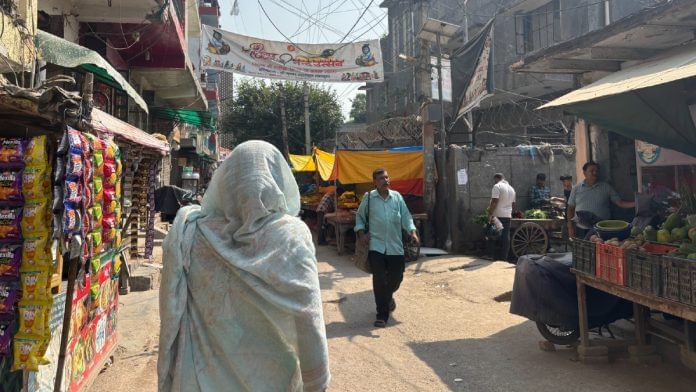New Delhi: On 12 November, Surinder Koli walked out of Greater Noida’s Luksar district jail a free man, nearly two decades after he was arrested in connection with the Nithari killings. Koli’s acquittal, as also that of his former employer Maninder Singh Pandher, in October 2023, is yet another knot in the sensational case which is as unsettled today as it was in 2006, when disappearances from Noida’s Nithari village first came to light.
It has also brought back focus to another suspected motive behind the killings—organ trafficking. While acquitting Koli in 12 cases and Pandher in two, Allahabad HC in 2023 repeatedly noted that investigators failed to probe the organ trade angle in the case.
The high court also mentioned that this aspect wasn’t probed to a conclusion despite investigators knowing that one of Pandher’s neighbours was a doctor who had been a suspect in an earlier separate case involving allegations of organ trade.
“She was the 51st child who went missing. They killed her because they were into organ trading. Not anything else,” said the father of the 10-year-old. His daughter, the fifth of six children, had stepped out in the summer of 2005 to get a dupatta stitched. She never returned home. The family ran an ironing station, right opposite house no. D-5.
Months after her disappearance, when police and local residents finally dug in, they found what the parents identified as the girl’s nylon pyjama, decomposed shreds of a cotton kurta, a slipper, and a pair of earrings. Unlike many others, the 10-year-old’s family—originally from Uttar Pradesh’s Unnao—never left Nithari after the tragedy. They only relocated their ironing station to a different part of the area, a few blocks away.
Asked what they suspect might have happened, the father, now in his 60s, took a long pause before responding. “…everyone wanted to save Pandher from the beginning. He was running an organ trading racket here. His helper Surinder Koli was helping him. Everyone got their share from this so they started this cannibalism nonsense.”
The mother chimed in. “They (investigators) botched the probe since the beginning. Everyone knew it was organ trading, but no, they wanted to make it into something else and look now what has happened.”
“If police and CBI wanted, they could’ve done a better job but no, why will they? We aren’t rich or important. So many kids and women died but no one got justice and never will. It’s like the Earth engulfed them,” said the father, rejecting CBI’s theory involving cannibalism.
In its chargesheet filed in one of the Nithari cases, CBI had in 2007 alleged that Koli suffered from ‘necrophiliac’ and ‘cannibalistic’ tendencies.
“Why would they (Pandher, Koli) eat human meat? They were both normal. We interacted with Pandher, we used to iron his clothes. He would have these parties at his house where doctors and nurses would often visit,” said the father, as the mother nodded in approval.
Koli’s acquittal in the last of the cases dating back to 2005-06 in which he was convicted has stirred unease and disbelief in Nithari village.
For families who could only retrieve bones and scraps of clothing instead of the bodies of their loved ones, the acquittal has reopened old wounds.
Also Read: The great Nithari botch-up: How the probe tied itself up in knots
‘There will never be closure’
A few blocks from where the couple run their ironing station, in the lane adjacent to the ruins of D-5, lives another family who too have given up hope.
A photoshopped picture of their six-year-old son with his younger brothers now hangs in the hall of the family home. “They have escaped any form of punishment. So many victims, and this is the end result,” said the boy’s mother. “It is tiring to keep repeating the same story again and again. Only we know what we have undergone. He was our first child. It has taken a lot to live with it. Repeating it is like reliving it again.”
According to the mother, the boy had stepped out to buy ice cream when “Koli stopped him and took him inside (D-5)”.
“He was never seen again. People saw Koli talking to him,” she alleged.
Like the six-year-old, another boy, aged three-and-a-half was among the children who disappeared from the area in 2005-06. His family lived in the same area, near the water tank. In December 2007, more than a year after the child went missing, some clothes and footwear which the family identified as his were recovered from the drain outside D-5.
Both Koli and Pandher were acquitted by the trial court in three cases including those of the boys aged six and three-and-a-half.
“No one cared enough to investigate properly. Everyone knows it’s them but … there will never be closure or justice … our children just disappeared and their clothes and bones were left behind,” said the father of the boy who did not live to see his fourth birthday.
(Edited by Amrtansh Arora)






